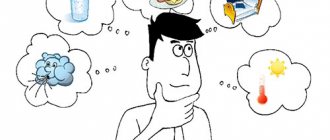Ways to satisfy modern man
The definition of social needs has changed as the world has evolved.
In current conditions, people are increasingly excluded from society. The Internet, social networks, gadgets - all this leads to the fact that individuals have little face-to-face contact. Important! It is impossible to clearly name effective ways to satisfy needs, since they are different for each person. There are general recommendations that will allow you to realize a social need
The individual organizes his own activities, so he must communicate, make contact, meet other people and take initiative
There are general recommendations that will allow you to realize a social need. The individual organizes his own activities, so he must communicate, make contact, meet other people and take initiative.
The ability to conduct conversations does not appear with the birth of a person. Social skills are trained through practice. You need to constantly communicate and get to know each other.
Another way is to learn new things. Meetings, seminars, training courses - all this allows you not only to gain knowledge, but also to acquire new social connections.
A person must understand who he is. To do this, he needs to devote time to reflection. Such self-analysis allows you to get an idea of your pros and cons. Self-esteem appears only in self-confident people.
Self-expression
This group includes needs that are manifested in a person’s desire to self-actualize, put his skills into practice, and find a worthy embodiment of his talents. They are largely individual in nature.
So, the need for self-expression also belongs to the social. When satisfying it, it is important to show individual character traits and reveal the inherent potential. This need rationalizes the other needs of the individual, filling them with new meaning. In this case, the individual receives social significance.
Hierarchy
The diversity of human nature is the reason for the existence of various classifications of needs: by object and subject, areas of activity, temporary stability, significance, functional role, etc. The most widely known is the hierarchy of needs proposed by the American psychologist Abraham Maslow.
- The first stage is physiological needs (thirst, hunger, sleep, sexual desire, etc.).
- The second stage is security (lack of fear for one’s existence, confidence).
- The third stage is social needs (communication, friendship, love, caring for others, belonging to a social group, joint activities).
- The fourth stage is the need for respect from others and oneself (success, recognition).
- The fifth stage is spiritual needs (self-expression, revealing inner potential, achieving harmony, personal development).
Maslow argues that satisfying needs at the lower levels of the hierarchy leads to strengthening of higher ones.
A thirsty person concentrates his attention on finding a source of water, and the need for communication fades into the background
It is important to remember that needs can exist simultaneously, the issue is only a matter of priority
Maslow's pyramid
American psychologist Abraham Maslow created his own theory of the hierarchy of needs, using the example of which we can briefly go through the seven steps, get acquainted with the needs of the individual and their significance in life.
So let's start from the basics:
- physiological needs are primarily important: food, drink, shelter, and so on;
- the need to feel safe;
- the need to love and be loved, significant for certain people;
- need for success, recognition, approval;
- the need to acquire special skills and abilities, self-improvement, knowledge of the world and oneself;
- the need for beauty, namely: comfort, cleanliness, order, beauty, and so on;
- peak in self-knowledge, evolution of abilities and talents, self-realization, finding your own path, implementing your goals and objectives.
Now we have an understanding of people's needs. They force each individual and society as a whole to move forward, to develop. Next, we will learn in more detail what relates to social needs.
Significance
Satisfying social needs from the “for oneself” group is a necessary condition for the formation of a full-fledged personality.
Compliance of a person’s life with his social expectations guarantees the positive socialization of such a person in society and excludes the manifestation of any forms of deviant behavior.
A person who is satisfied with his level of development, education, career, friends and family life is a useful member of society.
Each of his satisfied needs leads to the emergence of some socially significant result: a strong family with children is a full-fledged unit of society, career achievements are the successful performance of work functions, etc.
Satisfying needs “for others” and “together with others” is the key to the positive functioning of society.
Only positive interaction between people, their ability to act together in the public interest, and not just individually for personal purposes, will help create a mature society.
The problem of modern society lies precisely in the reluctance of people to satisfy common needs. Each person approaches the issue from a selfish point of view - he does only what is beneficial for him.
At the same time, the lack of initiative in carrying out important social actions leads to disorder, violations of the law, and anarchy.
As a result, the integrity and well-being of the society in which a person lives is violated, and this immediately affects the quality of his own life.
That is, his selfish interests are affected in any case.
Why is lack of communication so bad?
A person has a feeling of uselessness. The person suffers, feels unattractive, experiences fear and anxiety, which are often unfounded. Some feel uncomfortable being in society because of poor relationships with others, when they are isolated from certain social groups and contacts.
But this does not mean that to satisfy this need a person needs to communicate constantly. A mature person who has strong friendships, is not devoid of a sense of emotional support, and has a significant social status can be in a state of rest for several hours. Therefore, it is important to learn competent communication, realize your desires through it and become a holistic, accomplished person. Now we know that the need for communication is one of the social needs, but it is no less important than the others.
Is it possible to manage your needs?
Needs must be satisfied, but they should not control the will of a person. In addition, not all needs are useful, reasonable, or truly necessary. There are so-called imaginary needs that a person does not need, but is not aware of it.
Example. Alina wanted to dye her hair green. Parents did not agree to such an experiment for a long time. Then the girl bought the dye herself and dyed her hair secretly from her family. When Alina came to school, boys and girls began to laugh at her, calling her a mermaid, a swamp monster. Alina expected a backlash; it seemed to her that green was a fashionable color, that she would become popular thanks to this change in image.
At best, imaginary needs do not bring any benefit; at worst, they harm health, life, and well-being.
This is interesting! According to statistics, the number of alcoholics in the world is increasing every year. Scientists have calculated that by 2050, every twentieth person on the planet will be an alcoholic. Addiction causes irreparable harm to health and psyche, but people cannot refuse the need imposed on them.
To learn how to manage your needs you need:
- Have a purpose in life. A purposeful person will not be distracted by nonsense and will prefer useful things to harmful ones;
- Enrich your inner world. A person with many interests, developed abilities, and talents pays less attention to satisfying material needs;
- Show will. When tempted to abuse something, think about the consequences.
(Source)
Thus, a person will become the master of his feelings and needs, he will manage them, and consciously make decisions.
Needs for love and belonging
This is the next level of Maslow's pyramid. The need for love is closely related to the individual’s desire to avoid loneliness and be accepted into human society. When the needs at the previous two levels are satisfied, motives of this kind occupy a dominant position.
Almost everything in our behavior is determined by the need for love.
It is important for any person to be included in relationships, be it family, work team or something else. The baby needs love, and no less than satisfaction of physical needs and security needs
The need for love is especially pronounced during the teenage period of human development. At this time, it is the motives that grow out of this need that become leading.
Psychologists often say that typical behavior patterns appear during adolescence. For example, the main activity of a teenager is communication with peers. Also typical is the search for an authoritative adult – a teacher and mentor. All teenagers subconsciously strive to be different - to stand out from the crowd. This gives rise to the desire to follow fashion trends or belong to a subculture.
All needs are divided into two types
Let's look at them:
- Natural needs: food, drink, shelter and so on.
- Created by society: the need for work, social activity, spiritual formation and development, that is, for everything that will be a product of social life.
It is thanks to the former that social needs are formed and realized, which act as a motive for incentive action. Once physical needs are satisfied, according to Maslow's theory, the need for safety comes to the fore.
Material needs
Material needs play a major role in human life. This group includes all the needs necessary for a comfortable material existence:
- home;
- cloth;
- Appliances;
- furniture;
- means of transportation (personal or public transport);
- electronic devices;
- food.
(Source)
Everyone has their own idea of comfort; the level of material needs depends on a person’s financial situation and personality characteristics.
Example. For Nastya, two pairs of boots are enough for the winter; the main thing for her is that the shoes are comfortable. Maria is worried that her parents refused to buy her new boots because she has a lot of shoes and a new pair won’t fit in her closet.
The entire economy is built on satisfying material needs. Factories and factories produce even more products than a person can purchase. Therefore, wanting to artificially increase needs, manufacturers use a trick - advertising goods. Seeing a beautiful picture on the screen, a person, without meaning to, begins to think about this product and consider it valuable.
Material needs develop with the improvement of technology, so 100 years ago people could only dream of a wired telephone, today everyone has their own mobile phone.
(Source)
Types of needs
Needs can be classified on various grounds, of which there are quite a lot in the theory of psychology. The main types of division of needs are presented in the next section.
If we summarize all available theories, then we should distinguish three basic types of human needs.
Biological or physiological
Among the innate human needs laid down at the genetic level are the following:
- Food safety and taste characteristics.
- Comfortable external temperature and electromagnetic background.
- Clean water suitable for quenching thirst.
- Healthy ecology.
- Safety of life and home.
- Sexual satisfaction.
- Disposal of waste products.
These things are necessary for any living creature. This set of needs has practically not changed since the creation of the world, since from a physiological point of view, we are the same as millions of years ago. A person strives to realize them first and foremost and immediately.
Spiritual
Existential needs come from a system of universal human spiritual values, including: beauty, mercy, tranquility, harmony, peace, art. Each person has their own spiritual needs (as opposed to biological ones) and change over time and experience.
Among the spiritual needs are the following:
- The need for knowledge
. A mature person understands that in order to further grow, he must constantly learn. Moreover, expand the boundaries of existing skills and acquire new ones. People enter educational institutions to receive additional education, take advanced training courses, master new professions, and master the basics of painting and music. - The need for constant work on oneself, improving one’s personality (self-improvement)
. By satisfying this need, we quit smoking, go on a diet, get rid of toxic people and harmful emotions. A person thinks about how he would like to see himself after a certain period of time and strives for this. - The need for love and personal happiness
. The vast majority of people dream of having a loved one of the opposite sex nearby and creating a stable family. Many have been searching for many years, this need is so strong.
The realization of spiritual needs can be carried out through the simplest things. For example, a person goes into nature and sits with a fishing rod, fishing. At this time, he reflects, calms down, acquires spiritual harmony, satisfying his need for peace and making plans for the future.
Social
This type of needs is aimed at understanding one’s place in society and is associated with groups of people, social and economic activity.
Examples of social needs:
Personal identification. A person positions himself as a part of society with common traits inherent in society or a separate group. At the same time, he recognizes himself as an individual unit with a set of specific qualities and characteristics. Self-affirmation. We want to be satisfied with ourselves, with the actions and deeds we perform
It is also important for a person to feel significant in society, to enjoy respect and approval from other people. Altruistic aspirations
The individual takes pride in actions aimed at helping and assisting other people or living beings. He needs to be needed, useful, even in conditions of abandoning his own interests.
All of these types of needs are interpenetrating, they complement each other, some follow from others. For example, having satisfied the spiritual need to acquire a profession, we strive to achieve success in work for which we will be praised, and this is already a social need.
Satisfying the need for self-realization in the profession
Personal expression plays an important role today. High demands are placed on a person for two reasons:
- Competition in the labor market.
- Difficult life circumstances.
Satisfaction of the need for self-realization is expressed externally and internally. External manifestation implies achievements, for example, receiving a promotion, an increase in wages, respect from colleagues. Internal self-realization is the development of useful qualities, gaining knowledge and improving skills.
This type of self-realization is characterized by continuity, creativity, setting and achieving goals. Here you can add the disclosure of personal potential, recognition from people engaged in a similar type of activity and other things.
Self-realization in the profession is strongly influenced by personal traits, for example, flexibility of thinking and behavior, ability to organize, communication skills, and the ability to work in a team.
Concept of need
The need for any goods that requires satisfaction in the human consciousness is called a need. The concept is used not only for humans. Every living creature, plant, has a need. Need is a form of connection with the outside world and environment. Human needs are necessary for the development of one specific individual, an entire social group.
The concept undergoes changes during the evolution of society. What people dreamed of in ancient centuries is not similar to the desires of their contemporaries. At the same time, at the same social level, people can dream about different things. Needs directly depend on various factors:
- living conditions;
- level of education;
- cultural development;
- wealth;
- profession.
A state in which a person experiences needs, but cannot satisfy them, causes a feeling of discomfort. Dissatisfaction leads to tension in society and population activity.
Satisfying the needs that arise returns a person to balance and a normal perception of the world.
Why is it necessary?
Through communication, personality develops. A person gets to know the world, learns to evaluate actions, analyze situations, master moral norms, rules of behavior, which he will then use. Gains undeniable life experience in society. And thus creates his own attitudes and moral principles, socializes, forms a legal and political orientation. Therefore, the need for security and communication are the most important conditions for normal human development.
Types of social needs
Social aspirations, desires, and drives are determined by people’s belonging to society and are satisfied only in it.
There are three categories of social needs:
- “For myself”: self-identification, self-affirmation, power, recognition.
- “For others”: altruism, free help, protection, friendship, love.
- “Together with others”: peace on Earth, justice, rights and freedoms, independence.
Next, consider a detailed description of each of the needs:
- Self-identification lies in the desire to be similar to a specific person, image or ideal. The child identifies himself with the parent of the same gender and recognizes himself as a boy/girl. The need for self-identification is periodically updated in the process of life, when a person becomes a schoolchild, student, specialist, parent, and so on.
- Self-affirmation is necessary, and it is expressed in the realization of potential, well-deserved respect among people and a person’s assertion of himself as a professional in his favorite business. Also, many people strive for power and calling among people for their own personal purposes, for themselves.
- Altruism is free help, even to the detriment of one’s own interests, prosocial behavior. A person cares about another individual as about himself.
- Unfortunately, selfless friendship is rare in our time. A true friend is an asset. Friendship should be selfless, not for the sake of profit, but because of mutual disposition towards each other.
- Love is the strongest desire of each of us. As a special feeling and type of interpersonal relationship, it is identified with the meaning of life and happiness. It's hard to overestimate her. This is the reason for the creation of families and the appearance of new people on Earth. The overwhelming number of psychological and physical problems come from unsatisfied, unrequited, unhappy love. Each of us wants to love and be loved, and also have a family. Love is the most powerful stimulus, motivation for personal growth, it inspires and encourages. The love of children for their parents and parents for their children, the love between a man and a woman, for their business, work, city, country, for all people and the whole world, for life, for themselves is the foundation for the development of a harmonious, holistic personality. When a person loves and is loved, he becomes the creator of his life. Love fills it with meaning.
Each of us on Earth has universal social desires. All people, regardless of nationality and religion, want peace, not war; respect for your rights and freedoms, not enslavement.
Justice, morality, independence, humanity are universal human values. Everyone desires them for themselves, their loved ones, and humanity as a whole.
When realizing your personal aspirations and desires, you need to remember about the people around you. By harming nature and society, people harm themselves.
Classification according to D. McClelland
American psychologist David McClellad proposed his classification of social needs based on a typology of personality and motivation:
- Power. People gravitate toward influencing others and being able to control their actions. There are two subtypes of such individuals: those who desire power for its own sake, and those who strive for power in order to solve other people's problems.
- Success. This need can be satisfied only when the work started is successfully completed. It forces the individual to take initiative and risks. However, in case of failure, the person will avoid repeating the negative experience.
- Involvement. Such people strive to establish friendly relations with everyone and try to avoid conflicts.
Sailing through life in the same boat...
Even the most lonely and unsociable person sooner or later discovers that he needs to turn to other people for something. That is, the satisfaction of his needs directly or indirectly depends on their actions (or inaction) and attitude towards him.
A person's life can be compared to a long journey across the sea in the same boat with its other passengers. Lack of coordination and disregard for the needs of neighbors can result in disaster.
Each member of society, unwittingly or intentionally, can improve or significantly worsen the material, physical, psychological, and social situation of another person. Awareness of this imposes the obligation to renounce destructive desires and actions that can bring misfortune and grief into the life of another person or society. The social essence of a person lies in the fact that, realizing the inviolability of her own rights and freedoms, she strictly fulfills her duties in relation to other members of society and lives by the rule “my rights end where yours begin.”
Classifications of needs
Theoretical psychology offers many classifications of needs. We have already discussed one of them above: physiological, social and spiritual, these are the main groups of needs.
Foreign researchers did not so much classify needs as offer a specific list of them.
Examples:
- G. Murray
- achievements, aggression, independence, sex, creativity, understanding, respect, self-knowledge. - A. Pieron
- novelty, hedonism, communication, competition, mutual assistance and others (more than 20 types in total); - E. Fromm
- significance, self-affirmation, communication, affection, self-identification.
Some scientists have identified so-called neurotic needs as a separate group, the lack of satisfaction of which can lead to mental illness. These include: lack of social and interpersonal justice, the need for support and empathy, recognition, and possession.
In Russia, a classification of needs has been adopted, which divides them into the following levels:
- Based on the nature of the emergence of needs - natural and cultural
. - Depending on the area of application - communicative
(communication with other people),
cognitive
(the need to acquire new knowledge),
labor needs
, etc. - In relation to the object to which the need is directed - biological, material, spiritual and social
. - Correlating to their origin - endogenous
(determined by internal factors) and
exogenous
(depending on external conditions).
As we see, the number of human needs is numerous; today there is no complete list of them; there are only generalized groups and types. The most famous theory that places all types of human needs in order of priority is Abraham Maslow's Hierarchy of Needs.
The psychologist drew a whole pyramid, where needs are indicated in ascending order. This is what she looks like.
Maslow assured that until a person has satisfied the needs of the widest part of the pyramid, he will not strive to receive benefits from the higher levels. For example, if a person is hungry, then he has no time for public recognition. He considered hunger not only in relation to food, but also to sleep, thirst, sex, etc.
Maslow’s rule does not work in the opposite direction: an individual who has fulfilled the need for respect and recognition still needs food and sleep.
Primary and secondary needs
Before moving on to consider the desires and needs unique to the human species, it should be noted that man is a full part of nature. Thus, any individual combines both purely animal needs, focused on survival, and social ones, which can only be realized in society. Modern psychologists, sociologists and biologists highlight the following important points related to biological or primary needs:
- The need for air, food, water, clothing and shelter. Drinking water should not only be uncontaminated, but also taste good. It is necessary to have high-calorie and varied food, saturated with various microelements necessary for a comfortable existence. Clean air composition is important.
- Safety for life, absence of threats from the outside world (including natural disasters).
- Being in thermal, electromagnetic and acoustic comfort.
- Reproduction and procreation, as well as obtaining sexual satisfaction.
This also includes proper rest and relaxation, being in a comfortable natural environment. An important primary aspect is also the need for freedom, called spatial comfort.
Secondary needs include all the standard examples of social needs that can be briefly listed: movement in the hierarchical structure of society (the desire for dominance), the need for work, respect, communication, caring for other people, as well as the desire to comprehend the world and learn new things. Similar examples of social human needs are characteristic of many higher mammals.
There is also a category of pseudo-needs, that is, desires that are present only in the species Homo Sapiens. This may include the need for luxury, excessive aggression in order to gain leadership, or, conversely, the desire to avoid competition and any potentially difficult situations.
Social studies 10 Needs as a motive for activity
Being love
This feeling is based on recognition of the unconditional value of a loved one, but not for any qualities or special merits, but simply for the fact that he exists. Of course, existential love is also designed to satisfy human needs for acceptance, but its striking difference is that there is no element of possessiveness in it. There is also no desire to take away from your neighbor what you yourself need.
The person who is able to experience existential love does not seek to remake a partner or somehow change him, but encourages all the best qualities in him and supports the desire to grow and develop spiritually.
Maslow himself described this type of love as a healthy relationship between people that is based on mutual trust, respect and admiration.
Classification according to E. Fromm
The German sociologist Erich Fromm proposed a different classification of social needs:
- connections (an individual’s desire to be part of a social community or group);
- attachments (friendship, love, desire to share warm feelings and receive them in return);
- self-affirmation (the desire to feel significant to others);
- self-awareness (the desire to stand out from others, to feel one’s own individuality);
- reference point (an individual needs a certain standard to compare and evaluate his actions, which can be religion, culture, national traditions).
Concept
Human social needs indicate that an individual cannot live alone. He craves love, friendship, and other positive feelings that appear when two or more people communicate.
Unfulfilled social needs do not lead to death, but can seriously reduce the quality of life. Therefore, it is necessary to think about how to implement them.
By the term “social needs,” psychologists understand this type of need that is satisfied not only by communication
It is important for an individual to receive assessment of his activities and feedback from other people
This happens because a person is not only a unit of a biological species. His psyche is represented by a complex and multicomponent mechanism, which differs from that of an animal.
The individual wants to do something meaningful for the group that will give him recognition and praise. If he once received this, he strives to repeat the experience. It is the need for positive emotions that serves as the impetus for carrying out useful activities.
Psychologists believe that it is social needs that can contribute to the development of an individual’s personal sphere. It includes a person’s actions, his motivation, peculiarities of information perception, etc.
Psychologists are sure that it is social needs that force an individual to act actively. To gain recognition, he works and participates in public life.
For a full-fledged existence, a person needs to satisfy two groups of needs. The first is the need for food, drink, rest, etc. The second is the need for communication and recognition.
Some examples
Human motivation - what is it?
In order to better understand what social needs are, you need to analyze them using examples. In social studies, this topic is studied in detail, as it will be useful in life.
In development
In fact, all human inventions appeared to satisfy a specific need: clothing, tools, dishes and much more. Someone sought to make a discovery in science in order to become famous.
In public order
An example is any politician who is interested in gaining public recognition. Another example is a volunteer, event organizer, or other active person. The peculiarity of this type of activity will be that it is aimed not at obtaining material benefits, but at helping people.
Entrepreneurship can also be useful to society. A simple example is that a store owner gives away a certain amount of goods to charity.
In altruism
Subconsciously, all people strive to do what is beneficial to them and protect themselves. It is difficult to give up this, but it is possible. Selfless help and self-sacrifice are examples of the realization of social needs. A person in them does not seek any benefit for himself; he does this out of a desire to gain public recognition.
With altruism, an individual sacrifices his own interests
Social needs are very important for a fulfilling life. In their absence, no one dies, but you won’t be able to enjoy what is happening.
Diversity of needs
Man is a biosocial being, therefore all human needs can be divided into two types: biological and social. Biological (natural) are called simple needs, without which it is impossible to survive in this world: sleep, drink, breathe, eat. They form the basis of human life, connecting the individual with the animal kingdom.
(Source)
Such needs need to be satisfied, but they do not need to be indulged. Excessive satisfaction of natural needs can ruin the life of any individual.
Example. Vasya likes to sleep 10-12 hours a day, because of this he is constantly late for classes. Masha loves cakes, chocolates and other types of sweets. She cannot control herself and eats the entire box of chocolates at once if she finds one at home. Because of this, Masha has health problems and frequent acetone.
Natural needs appear in a person from birth, and social needs are acquired in the process of living in society. The presence of social needs indicates the development of the individual as a person. Since social needs are more complex, they develop as the child grows up.
Examples of social needs:
- Communication;
- Respect;
- Friendship;
- Recognition of merit;
- Understanding;
- Cooperation;
- OK;
- Love;
- Establishing justice.
In addition, other types of needs can be distinguished:
- Aesthetic – this is the desire to see harmony, beauty, the need to take care of one’s appearance and physical form;
- Personal - self-development, self-knowledge, self-improvement. These needs manifest themselves in the process of growing up, the formation of the child as an independent person;
- Emotional – a person needs to express emotions himself and receive them from others (joy, sadness, anger, surprise, etc.);
- Intellectual – from birth it is natural for a child to learn about the world around him; the need for knowledge and development of thinking persists throughout life;
- Creative is the search for self-expression through music, art, poetry, dance;
- The need for work - a person engages in labor activity not only for the sake of material reward, he receives pleasure and satisfaction from it. A person strives for the fruits of his labor to be highly appreciated by society, colleagues, and relatives.
(Source)
All needs that a person cannot live without are called primary (they are needed first), the rest are considered secondary (they are thought about after the first ones are satisfied). Primary needs include: sleep, food, safety, shelter, clean drinking water. Secondary needs: smartphone, branded bag, travel to exotic countries, higher education.
Example. Petya forgot to have breakfast at home and take money for lunch to school. By 12 o'clock in the afternoon he had developed an appetite. At this time, everyone was writing a test in mathematics, he really wanted to get an 5, but could not think about anything other than delicious food. After 10 minutes, his desk neighbor Andrei realized what was going on, he carefully handed Petya a bun so that the teacher would not notice them. Petya asked to leave the class and ate a bun in the corridor. After this, things went better and he successfully completed all the tasks.
At the time of birth, a person has only predominantly material needs. But as one grows older and develops a personality, the share of material needs decreases in favor of an increase in spiritual ones. This process is called the elevation of needs.
Hierarchy of interests
In simple words, the hierarchy of interests is a pyramid, at the base of which are secondary interests, and at the top are the main ones.
From this diagram you can see the interests of twelve-year-old Petya Ivanov. Petya is good, he is interested in studying, but lessons are not the most important thing for him. He spends more time on the street, playing football with the kids in the yard. But Petya’s favorite pastime is watching and helping his father repair small household appliances, engines, and solder wires on various parts with a soldering iron. Most likely, in the future Petya will become an engineer, a car mechanic, and will repair special equipment.
A large number of interests indicates the comprehensive development of the individual. But among everyone there is a main hobby that prevails over everyone. Such interest needs to be given more time and attention. Most likely, it will be associated with the choice of profession in the future.
The cover of the lesson is taken from the source.
Basic sociogenic needs
List of basic social needs experienced by a person living in society:
- Work. A full-fledged member of society feels the need for professional fulfillment, which allows him to gain the respect of other members of society, acceptance and recognition, develop his own skills and receive material benefits. The fulfillment of the need for work allows you to simultaneously satisfy several social needs - for communication, for recognition, for obtaining material benefits, for getting closer to power, etc.
- Development. A complete person always strives to gain knowledge. A person can acquire new knowledge throughout his life, satisfying the desire to learn and comprehend new things.
- Communication. No person can exist without society, without communication.
Forced isolation certainly leads to personality degradation and loss of social skills.Through communication, a person shares his thoughts, gains new experience, receives support, etc.
Result
The complex of needs becomes a source of activity and stimulates activity. After all, all actions and actions are carried out in order to obtain benefits. This can happen directly: to communicate, it is enough to leave the house and meet friends or talk to loved ones.
Other goals force and solve a number of problems leading to it. For example, in order to achieve a worthy position, you need to make progress in your professional field.
But if it is impossible to live without satisfying biological needs, then social ones can be omitted. The reason for this is laziness, lack of initiative, and fears. A person may experience an urgent need for communication, but at the same time have no acquaintances due to his insecurity and low self-esteem. In this case, there will be no threat to life, but a feeling of uselessness and loss is guaranteed.
What is its essence
So, social needs also include the need for security. After all, almost every person thinks about the future, analyzes the present and predicts events ahead in order to remain calm and confident in the future. It is because of this need that a person reaches for stability and constancy. He accepts everyday routine and everyday life better than spontaneous changes and surprises, because his peace of mind and sense of security are disturbed. Thus, human social needs include the need for security.
For most people it is of great importance in life. Because it has a strong influence on behavior, character, sensation and well-being. It means:
- The main thing is physical safety (the situation in society, the imperfection of the legal sphere, unpreparedness for natural disasters, poor ecology).
- Secondary is social insecurity in the areas of health and education.
This need does not always act as an active force. It prevails only in situations with a critical level of danger, when it is necessary to mobilize all forces to fight evil. For example, during military operations, natural disasters, serious illness, economic crises, that is, during any circumstances that threaten unfavorable conditions. Go ahead. Human social needs also include the need for communication.
Briefly about what the needs are
In general, there are many classifications of needs. Let's consider one of them:
- Material. Associated with the receipt of certain funds (goods, money or services) that are necessary for normal human life.
- Spiritual needs. They help in understanding oneself and the world around us, existence. This is the desire for self-improvement, self-realization and development.
- Social. Everything related to communication. This includes the need for friendship, love, and so on.
Needs are the engine through which human development and social progress occur.
Social needs
According to the definition, this is the need for something, the need for something that will satisfy the desires and requests that have arisen. The social essence of human needs is manifested in what is not characteristic of animals and is explained by his belonging to the human race:
- He needs communication and recognition of the merits of his personality by other members of society, self-respect, achieving a certain position in society, in power.
- He wants to be useful to others, to help the weak and sick, to love and be loved, a good friend.
- He is ready to defend freedom, peace and justice.
Of course, these and other personal needs are not expressed clearly enough in all people. A person can have various negative qualities: to be selfish, with hypertrophied self-esteem, in critical situations - a coward, a traitor. His personal qualities and social needs are the result of family and public upbringing, education, and cultural development.











